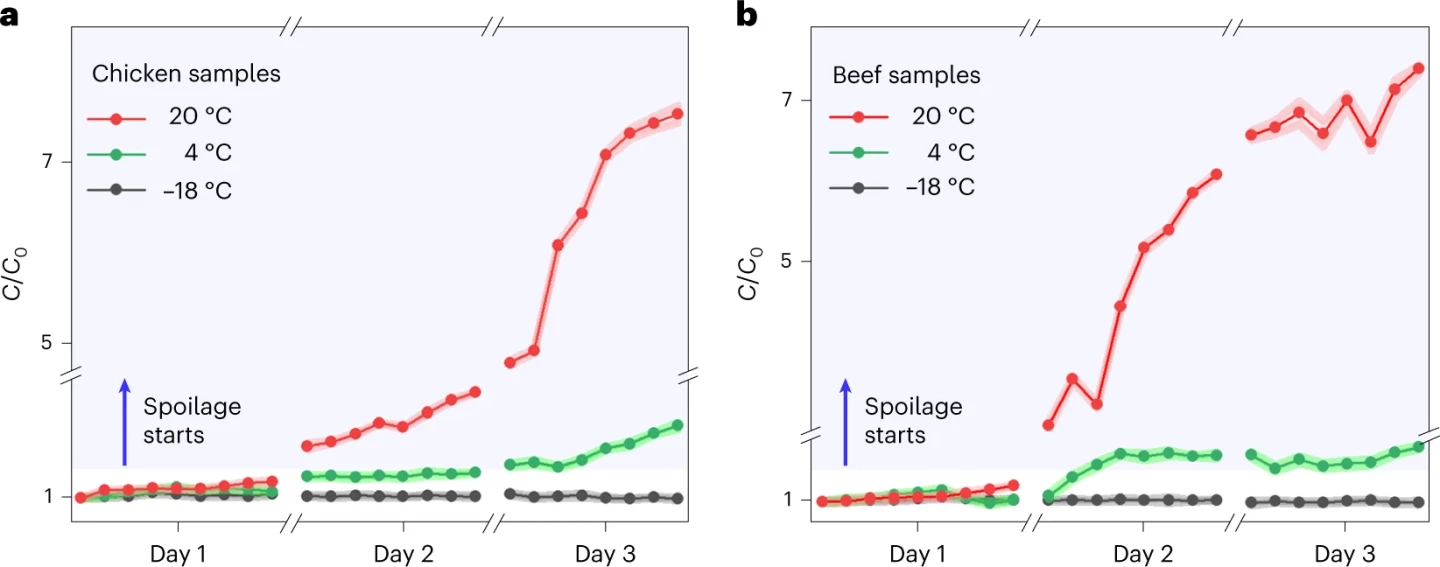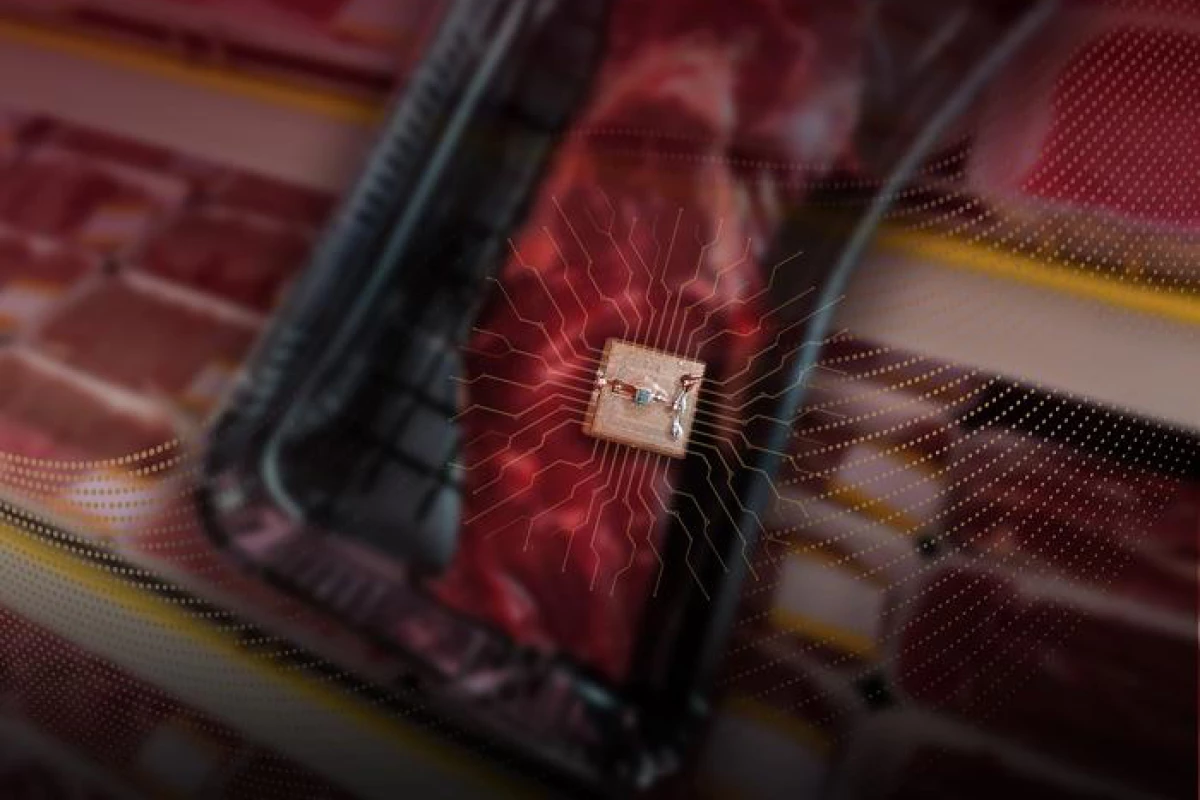Humans waste a lot of food, some of which is due to spoilage. Researchers have developed a tiny sensor that monitors the freshness of protein-rich foods like meat, chicken and fish in real time and sends the data to your smartphone. The device has the potential to transform food safety and security worldwide.
Each year, roughly one third of all food produced globally is lost or wasted. That’s around 1.4 billion tons (1.3 billion tonnes) of food. Not only is it costly for the global economy in terms of money, but up to 10% of greenhouse gases come from food that’s produced but not eaten. And then there’s the risk of food poisoning from eating spoiled food.
When protein-rich foods like meat, chicken and fish begin to spoil, they produce biogenic amines, organic compounds that are indicators of food quality and are potentially toxic to humans. While biogenic amines are the gold standard method of monitoring food spoilage, they require measurement by expensive, non-portable instruments that have to be operated by trained personnel.
Now, researchers at Koç University, Turkey, have developed a tiny sensor that can monitor food freshness in real-time, wirelessly and without a battery, and send the results to a smartphone.
The sensor is made of an easy-to-synthesize polymer laminated on electrodes that use capacitative sensing to detect biogenic amines generated by protein-rich foods. It weighs about 2 g and is 0.3 in2 (2 cm2) in size. The sensor uses near-field communication (NFC) technology, with a chip that couples with a smartphone, wirelessly transmitting measurements in real-time via an antenna. The chip receives power when an NFC-compatible smartphone is placed near the sensor.
The researchers tested their sensor in packaged chicken breasts and rib steak to demonstrate the real-world application of the device. The meat samples were stored in different conditions: in a freezer, in a refrigerator, and at room temperature.
Over three days, the capacitance of the sensor monitoring the room-temperature samples went up, indicating that biogenic amines were being released from the meat as it spoiled. This, say the researchers, indicates that the sensor efficiently detected spoilage.

“We have tested the sensor using chicken and beef samples stored under various storage conditions to demonstrate a real-life application for the sensor,” the researchers said. “The sensor presented a reliable performance, such that the spoilage of foods was predicted during three-day measurement by instantaneous sensor readings using a mobile phone. On the third day, the room-temperature-stored samples showed a 700% change in sensor response compared with the samples stored in a freezer, which proves the sensor operation for the detection of spoilage.”
The researchers say their sensor is easy-to-use, cheap to make, and enables continuous monitoring of protein-rich foods on supermarket shelves or at home.
“The proposed device can be used by meat producers, suppliers, authorities and end customers for real-time freshness/spoilage monitoring of protein-rich foods,” said the researchers. “Furthermore, a batch-fabrication-compatible process with low-cost materials was demonstrated, which can give rise to the production of portable, easy-to-operate devices that can attract particular interest where food safety and food waste are a concern.”
The study was published in the journal Nature Food.
Source: Koç University via EurekAlert!






